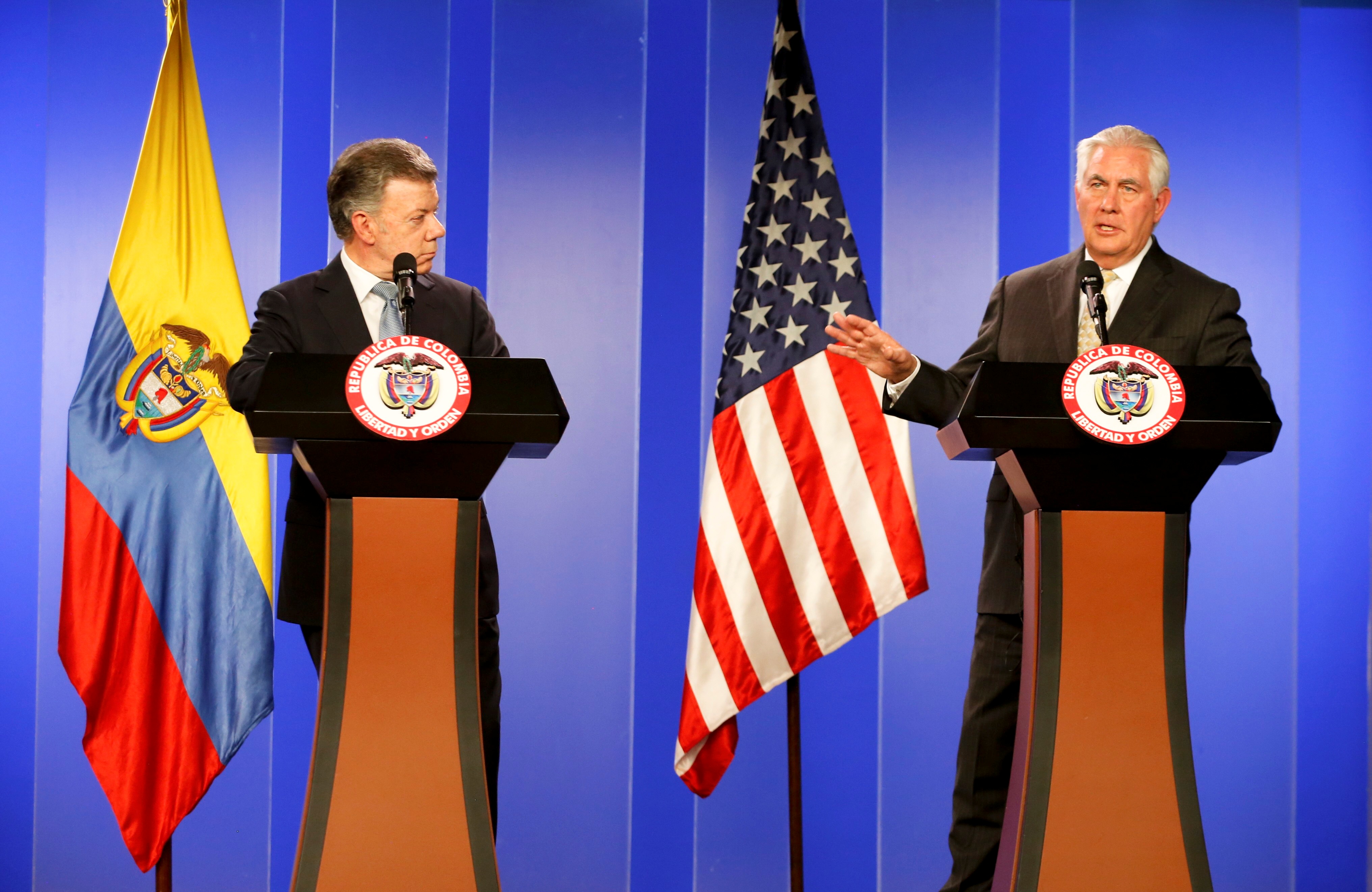BOGOTA, Colombia (AP) — U.S. Secretary of State Rex Tillerson said Tuesday he is encouraged by Colombia’s efforts to slash the amount of cocaine produced in the South American nation but cautioned that “we need to see results.”
In a joint appearance with Colombian President Juan Manuel Santos, Tillerson said that as a primary consumer of illicit drugs the U.S. shares a responsibility in combatting the narcotics trade and will continue to support Colombia’s efforts.
His conciliatory remarks came months after President Donald Trump threatened to decertify Colombia as a partner in the war against drugs unless the nation reversed a record surge in cocaine production.
“We need to see the metrics going in the right way,” Tillerson said. “That’s all President Trump wants as well.”
A White House report found cultivation of the plant used to make cocaine rose to levels unseen in Colombia in nearly two decades of U.S. eradication efforts in 2016. The coca boom has tested the relationship between the staunch allies. The U.S. has spent more than $10 billion in counter-narcotics work in Colombia.
The rise in coca growth coincided with Colombia’s peace deal with leftist rebels that provides benefits to coca farmers who agree to substitute their crops and a decision by Santos to stop the use of crop-destroying herbicides over health concerns.
Santos defended Colombia’s work in reducing coca production, telling Tillerson that the nation has forcibly eradicated 54,000 hectares of the crop and signed collective agreements with 120,000 families to substitute coca.
He also stressed that U.S. efforts in reducing demand are key to resolving the problem. The U.S. is the world’s largest consumer of cocaine originating from Colombia.
“We are working together on a problem and challenge that needs cooperation from both countries,” Santos said.
Tillerson is on a five-nation tour of the region that thus far has been dominated by concerns about Venezuela’s mounting political and economic crisis.
The secretary of state said Tuesday that he had a “very extensive exchange” with Santos on how the U.S. and Colombia can work with others in the region to restore democracy in Venezuela, which he described as “our only objective.”
Last week, Tillerson remarked in a speech at the University of Texas that throughout the course of Latin America’s history it has often been the military that has stepped in to “manage a peaceful transition.” On Sunday, Tillerson said the U.S. is considering restricting oil sales from Venezuela.
Both remarks drew swift rebuke from Venezuelan officials, who accuse Tillerson of using his trip to increase pressure on governments around the region to join the U.S. in what they call a “perverse plan of aggressions against Venezuela.”
During his stop in Colombia, Tillerson said the U.S. would consider re-allocating resources earmarked to address Venezuela’s humanitarian ordeal to help Venezuelans who fled and are now in Colombia.
Venezuelan President Nicolas Maduro has long refused to accept humanitarian aid, seeing it as a potential means for foreign nations like the United States to intervene in the struggling nation’s affairs.
Colombia is dealing with a mounting influx of Venezuelans, many of whom arrive illegally and with little more than the clothes on their backs. The nation recently opened its first border shelter for Venezuelans fleeing the crisis.
“We are all heartbroken by what we see happening in Venezuela,” Tillerson said. “And we are also heartbroken to see the impact it is having in Colombia.”




















